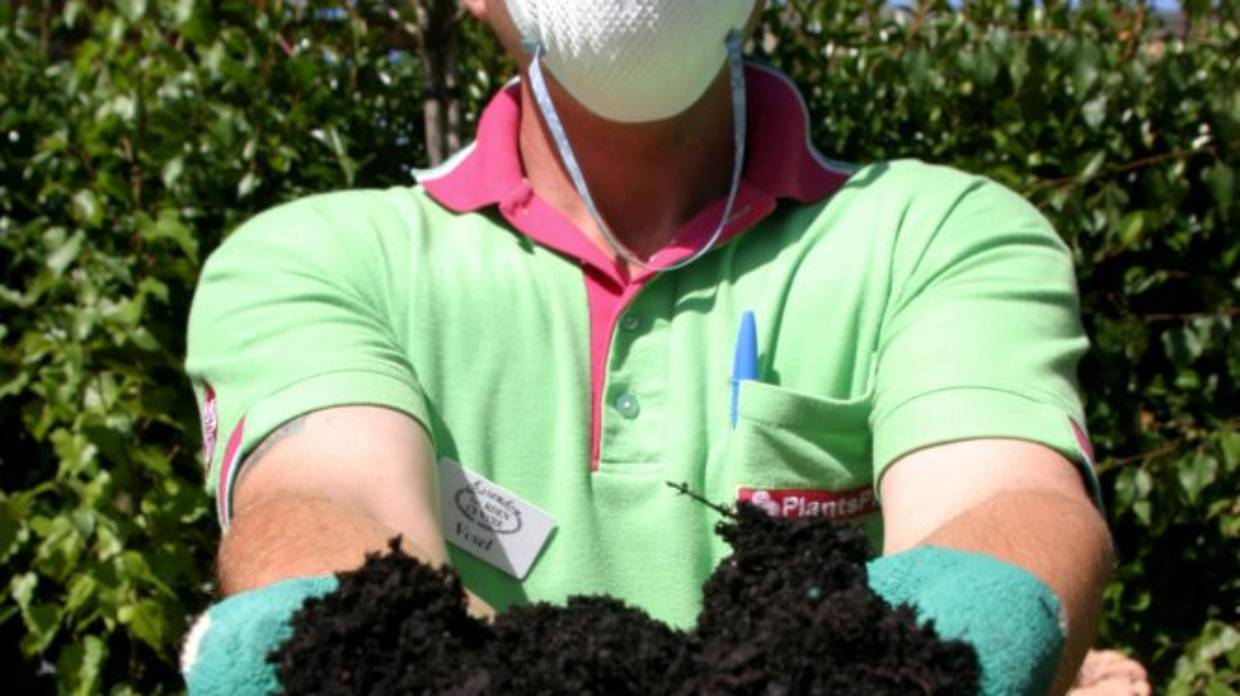The death of a Christchurch man after contracting Legionnaires’ disease has his friends asking whether the warnings about the dangers of potting mix are strong enough. Myles McIntyre, 77, of Fendalton, died on December 20 from complications from Legionnaires’ disease, about six weeks after falling ill.
According to family and friends, he was well aware, as an experienced gardener, of the recommended safety measures when handling potting mix. He would split open the bags and use the hose to wet them down well, then leave them exposed to the air before using the mix. He wore gardening gloves, but no mask.
McIntyre was a librarian for The Press for many years and was a key staff member during the Canterbury earthquakes when the newspaper worked in portacoms at the printing plant near Christchurch Airport. Bacteria can easily grow in potting mix. Legionella longbeachae is one species that breeds in the warm, moist conditions inside the bags.

Inhaling the spores can cause Legionnaires’ disease, a potentially fatal form of pneumonia that can be more easily contracted by older people, particularly if they have existing health conditions, poor immunity or chronic illnesses.
Several dozen Cantabrians every year need hospital treatment for Legionnaires’. In 2017, 62 people in the region were admitted to hospital with the disease and 13 needed intensive care.
Sue McIntyre said her husband bought several bags of potting mix in early November for use on his vegetable garden. He had carried out his usual precautions.
“He was always careful. I think he was unlucky.
“I used to say, ‘be careful, wear a mask’. He said he was very careful, and was always spraying it.”
Within a few days McIntyre was in Christchurch Hospital. He was put into an induced coma for several days and also suffered a heart attack. When the pneumonia from Legionnaires’ cleared up, he contracted hospital pneumonia and had difficulty breathing.
McIntyre had undergone a triple heart bypass about six years ago.
Despite warnings on the bags and on shelves in some stores, Gary Day is angry about his long-time friend’s death and believes more could be done to get the safety message across.
A black and white warning sign was not enough. Bags should carry a warning “equivalent to a blood-red skull above a pair of blood-red crossbones”.
“I find myself in big hardware and gardening stores and feel like going up to people and saying, ‘please be aware of this stuff’.
“Myles was a conscientious gardener who was well aware of the potential dangers lurking while working with potting mix.
“However, unaware that his luck was up against a stacked deck, he inadvertently breathed in what would kill him.”
Day wondered if keeping bags of potting mix and compost out of the sun might reduce the amount of bacteria breeding inside.
He also suggested checkout staff should remind customers buying potting mix that it could be dangerous.
Canterbury medical officer of health Dr Alistair Humphrey said the number of keen gardeners in Canterbury meant more here could potentially contract Legionnaires disease from potting mix and be hospitalised than in other parts of the country.
The gardening industry had been looking at ways of making safer composts.
“Composts are made in different ways by different companies. At this stage it is not clear whether, for example, adding animal matter may help. There’s also heat treatment of composts.”
Many people heeded the warnings, but it was easy to forget, Humphrey said.
“In quite a few cases, people say, ‘oh yes I know about it, I’ve read the leaflets’, but for whatever reason didn’t think about on the day.
“Gardening is very good for us. We have to be careful about how we warn people – we don’t want to put them off gardening.”
The best precautions were to open potting mix carefully, wear gloves and a mask, dampen down the product, use it in a well-ventilated area and wash hands thoroughly.
Source: www.stuff.co.nz by Paul Gorman

